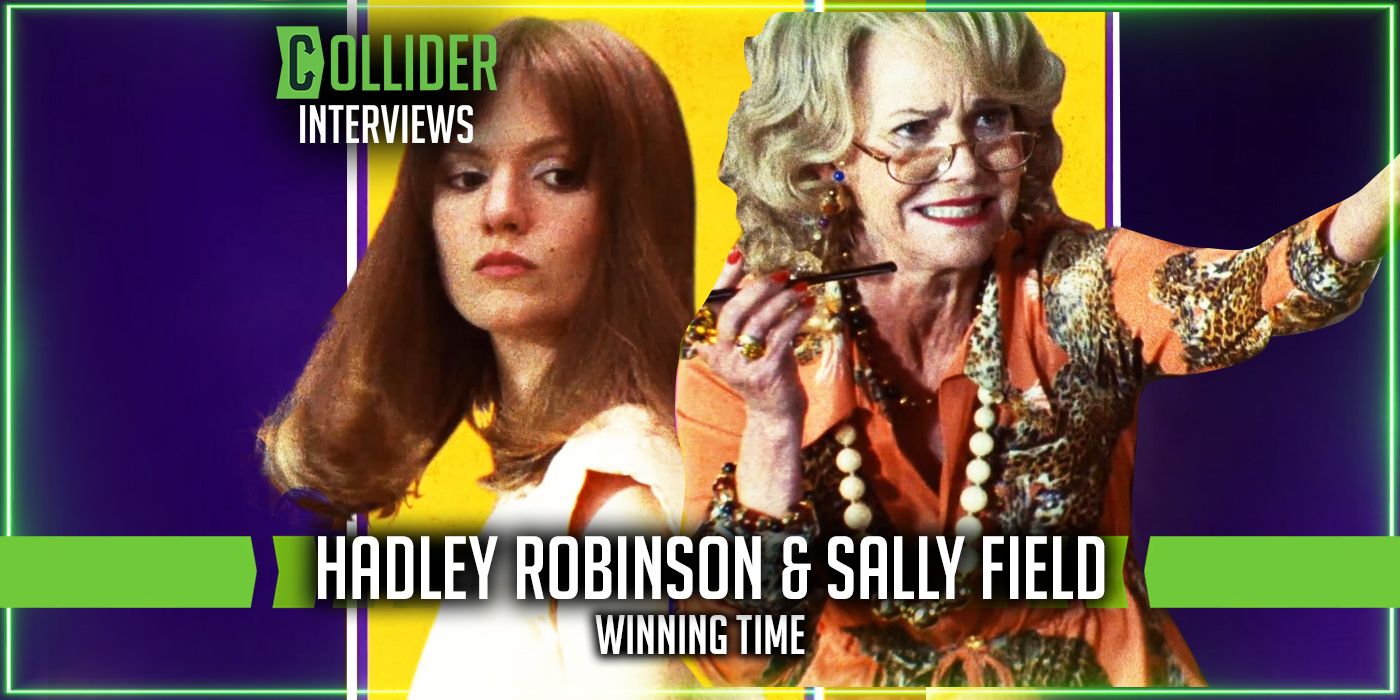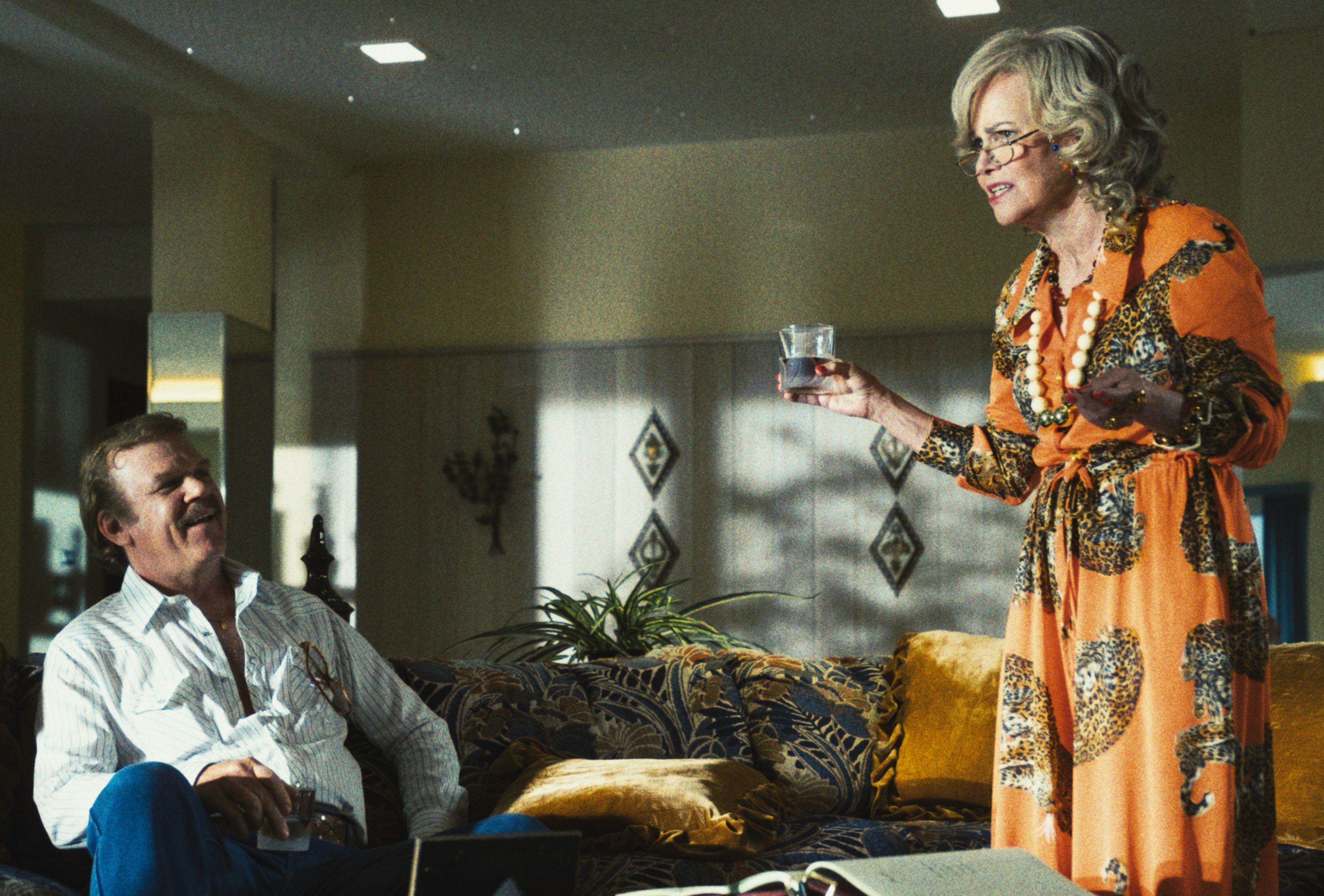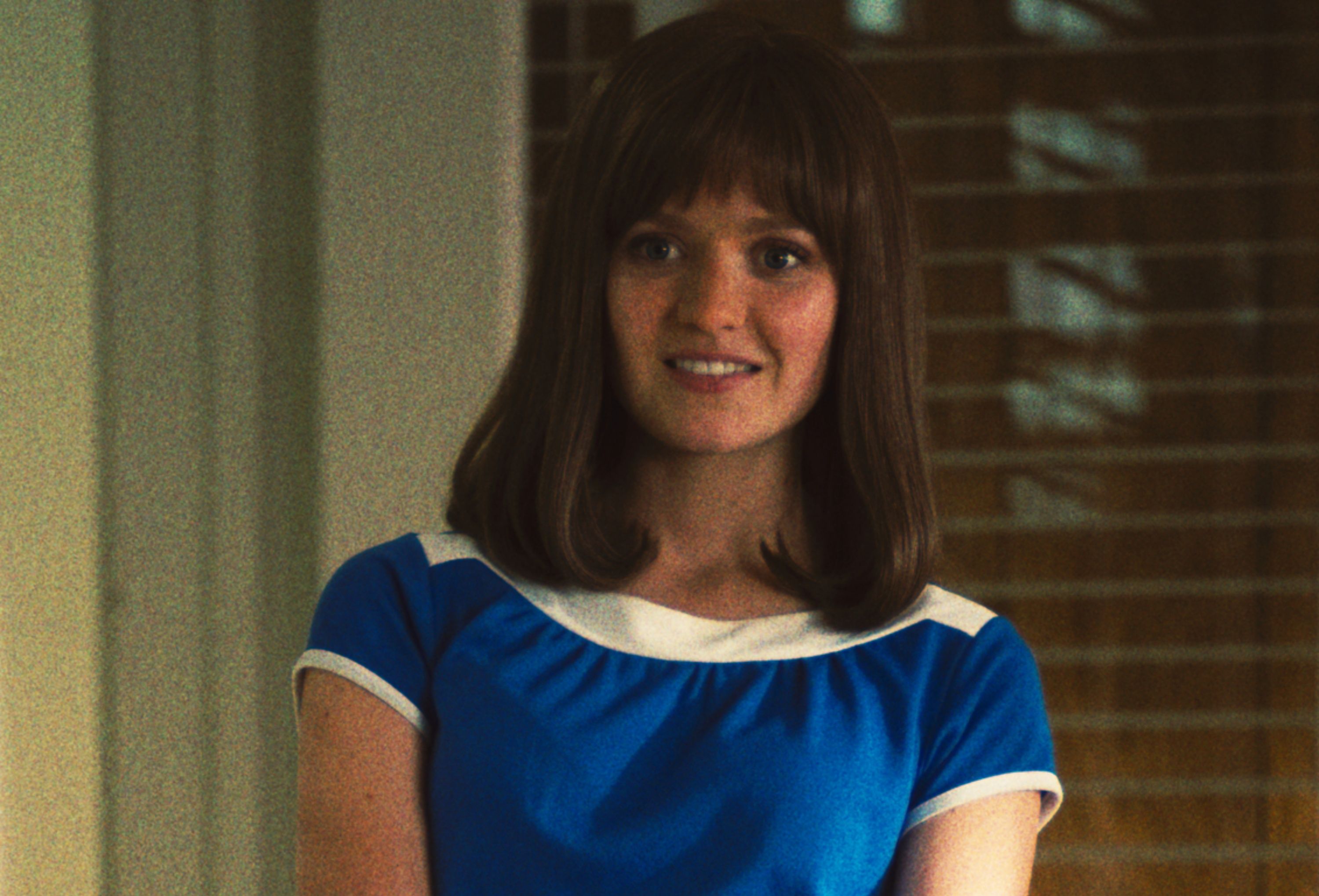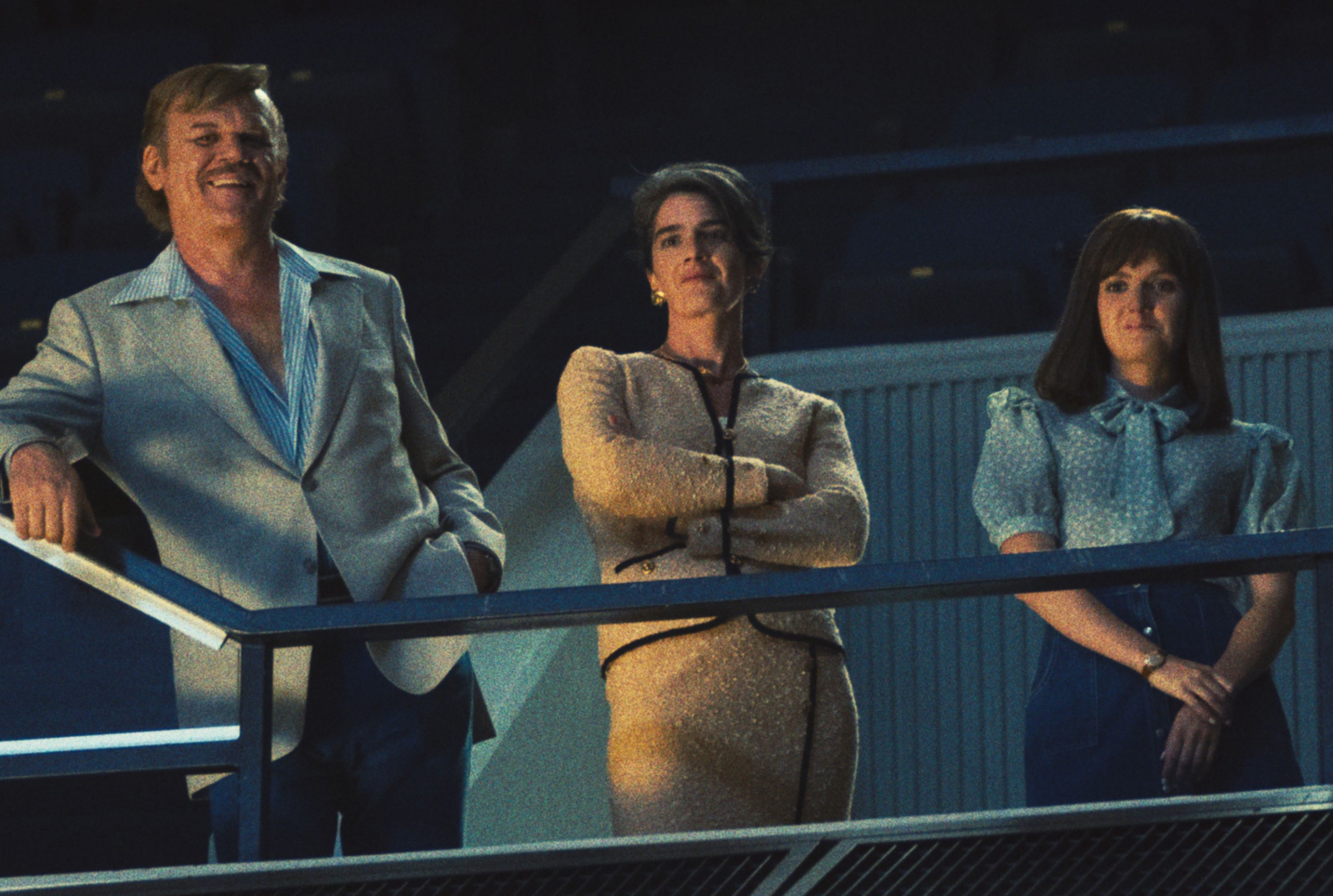From co-creators Max Borenstein and Jim Hecht, and with a pilot directed by executive producer Adam McKay, the 10-episode HBO series Winning Time: The Rise of the Lakers Dynasty follows the intertwining professional and personal lives of the 1980s Los Angeles Lakers. What became one of sports’ most revered and dominant dynasties started with a vision set in motion when Dr. Jerry Buss (John C. Reilly) took over and reinvigorated the franchise, bringing together the flashy characters and the unsung heroes that forever changed the NBA and what the fans grew to expect from basketball.
During this interview with Collider, co-stars Sally Field (who plays Jerry’s mother, Jessie, an eccentric woman who becomes her son’s trusted advisor and bookkeeper) and Hadley Robinson (who plays Jerry’s daughter, Jeanie, a young woman looking to establish herself in a male-dominated business) talked about how being a huge Lakers fan immediately got Field on board for this project, using nerves about a job as fuel to get the character where you need them to go, the responsibility of taking on these real-life people, the close relationship that Jeanie had with her dad, and how important it was for Jessie to lift up Jeanie in her life and career.
Collider: I particularly loved your characters, especially because they’re a nice break from all the men in this series. Sally, when the possibility of playing this woman came your way, what was your initial reaction? Did you immediately connect with her? What did you think of her?
SALLY FIELD: Before I even read the screenplays that they sent me, I’m a huge Lakers fan, so it would’ve been hard for me to say no, no matter what. To me, it was so fun to be a part of a project where I was there and I watched these games. It was my way to be with my young sons. I was a single mother and I would take my young sons, in the early ‘80s, and watch Magic and Kareem play. We watched, as they got older, and then young Kobe eventually showed up. So, I was then and I am now, a huge Lakers fan. But then, there was this character that we had to invent a lot of. There’s not a lot of real information on her, so we had a lot of license to just go with it.
You look at who Jerry Buss ultimately was, how he looked, and how he lived his life, and it came from somewhere. She was the primary parental influence in his life. She raised him. She was a single mother. She came to Hollywood and wanted to be a movie star in the ‘30s, but that didn’t happen, so she became an accountant. She went to night school. She was a survivor. She was tough. She helped him in his early business and was his accountant. And then, the relationship she had with her granddaughter, she was trying to help her make her way and trying to teach her how to navigate this male world. She invited her to step up and said, “It’s gonna be yours, baby. Have faith in yourself.” It was great fun to invent her. I was the crazy woman in the attic. I only got to be with Jeanie and Jerry, but it was fine because it was so fun to do that. I never got to see them play [basketball] or anything. I have to watch the show for that.
You’ve been doing this for a while. Are you fully confident in your abilities as an actor, or do you get nervous, especially when you have such a personal connection to the story?
FIELD: You know what? If you’re not nervous every time you go to work, then it’s time to quit. There is always something immediate and dangerous about it. You are always about to have an anxiety attack, except you learn how to handle it. You learn how to use that energy to fuel what you do. I’m always at least slightly nervous, every day that I work, and I’ve been doing this almost 60 years. It’s hard to believe that, at my young age.
ROBINSON: Does it get better, Sally?
FIELD: It gets better, only in that you have so much history. I learned to not question the anxiety and the nerves that I feel. I learned to not wish that I wasn’t feeling that way, but just to say, “Okay, bring it on.” I use it as fuel to go where I have to go and to lose the barriers I have to lose. You have to hit the ground running. There can’t be any room between strangers and intimate friends. All of that helps get you there.
Hadley, how do you navigate those feelings, when you come into something like this? There are so many things going on in this project that it feels like you’re just thrown into the deep end, no matter what.
ROBINSON: Yeah. On top of it being a real-life person that you’re playing, who’s a living, breathing person, who’s an icon and a legacy in the NBA, you’re also then thrust into this setting where you’re surrounded by other legends, like Sally Field. It’s a lot of different layers. And then, you just wanna do your work, at the end of the day, and stay true to this story that you’re trying to tell. Like Sally said, you look at what story you’re trying to tell, and then you block everything out and you stay focused on your job. But I’m always nervous.
How did you find who Jeanie was, especially at this point in her life? I would imagine these earlier years are not as documented as the later years are, so how did you find her? Was there an outfit, were there mannerisms, was there something you learned about her that really helped you, every day?
ROBINSON: Right, because we know the end game. We know who she is now, but who was she at the very start? What sparked this dedication and motivation? What helped a lot was there was this one photo I used that I kept going back to. It’s the only really intimate photo I could find of Jeanie, where she wasn’t being presentational and in the public eye. It’s her watching a game, and you just see her wide eyes, she’s biting her lip and she has her hands right up to her chin, and you see how much she cares. She really cares, and not just about the game, but also about the people involved and the whole thing. I think that’s why she became who she is. It goes back to the nerves thing. It all comes down to caring. I think she had people in her life that she really cared about, like her father. She is so open about how devoted she was to him. I think when you do something in the name of somebody you love, you’re more likely to be successful. I think that’s where it began.
What was it about her that made her the Jerry Buss whisperer? She really seems to have really understood who he was.
ROBINSON: Yeah. I think she knew him really well, for all his greatness and his flaws. Just from growing up with him and watching him and knowing what he’d been through, she could have had her own experience and isolated herself and separated herself from him, but instead she interacts and is constantly asking the question, “All right, but what does this man need?” She would really watch and see what made him tick. She would ask herself, “What can I be, to be what he needs?” He’s got that more, more, more mentality, where he’s never satiated, and she just wants to be that thing that satiates him. I think that was the initial reason.
Sally, what do you think this woman thought of her son?
FIELD: I think she adored him. She had a bit of narcissism going on in her as well. It wasn’t pathological. She didn’t need to be institutionalized, but she wanted to stay important to him. He is the most important man in her life, always. In some ways, she puts him down to say, “You’re just a blithering idiot. You need me to help you.” It was always, “I can help you out.” They had this combative relationship, but sometimes when you have that, you learn from the negative. That tool that they had, where they batted against each other, he also used, at least in our world that we made, as fuel to go in and do more and be more outrageous. She clearly was outrageous. He looks the way he does, so we created a character who also does not look like she belongs in the world. She drinks too much and she smokes.
She’s clearly his mother, and they are very, very connected, always. She wants him to win, but she wants to be there with him and she wants to have been part of it. Matter of fact, she wants to be the reason he wins. And that’s what he has inside of him. The people that he loves, he devours, and she has the same kind of thing, except with Jeanie. She wants to give Jeanie what she couldn’t do. She wants to give to Jeanie what she couldn’t conquer. She couldn’t quite get there, and she wants Jeanie to learn it and to do it. She knows that Jeanie has these smarts, but she doesn’t have the strength yet and the confidence that it takes to step up. You see, in this season, that she’s trying to give that to Jeanie.
Winning Time airs on Sunday nights on HBO and is available to stream at HBO Max.




